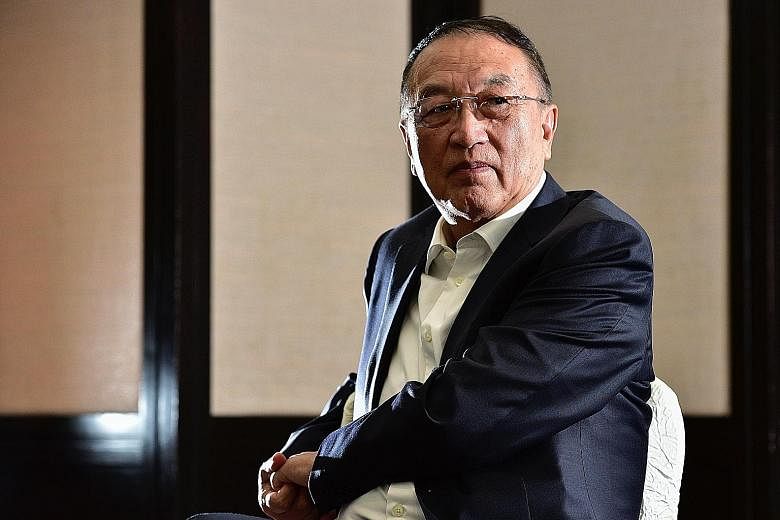China's economy is facing pressure as it undergoes a transition, but there are still areas with opportunities for growth, said the founder of tech giant Lenovo.
Mr Liu Chuanzhi told reporters here that he was bullish about China's entrepreneurial streak, saying this will drive growth.
"Entrepreneurship is not just a slogan" in China, he said, pointing to the success of Beijing's Zhong Guan Cun, the country's equivalent of Silicon Valley.
Speaking in Mandarin, Mr Liu, who was here last week to give a talk about how he developed Lenovo, said entreprenuership, along with consumption and outbound investment, will provide China with an economic lifeline.
"Strong consumption demand has not been fully satisfied and has room to grow." He added that China's outbound investment is backed by its companies having "competitive advantages in capital and industry knowledge".
Mr Liu has been relinquishing his executive role in Lenovo over the years. He is now chairman of Hong Kong-listed Legend Holdings, the parent company of Lenovo.
Legend has a market capitalisation of HK$46.8 billion (S$8.4 billion), and invests in sectors such as IT, financial services, food and agriculture, property and energy.
Last Thursday, he spoke before an audience of about 1,000 people at the Mandarin Orchard hotel at a talk organised by Lien Ying Chow Legacy Fellowship and Business China. He gave the gathering a lively account of developing Lenovo, now the world's top PC maker by market share.
Mr Liu recalled trying to get a permit to start manufacturing Lenovo-branded computers in China before the country opened up.
He also recounted his difficulties when trying to acquire IBM's PC business. He told the audience that then, he had gone to give a speech at Peking University's executive MBA class and discussed the acquisition, asking a class of 90 to raise their hands if they thought it was a good idea.
"Three hands were raised, and I realised that two were Lenovo staff," he recounted to laughter.
Nevertheless, he persevered and went through with the acquisition. Lenovo's blockbuster purchase of IBM's PC business in 2004 is still considered a case study of successful post-merger integration.
The Lien Ying Chow fellowship, a partnership between NTU and the Lien Foundation, was established in 2007 and aims to support leaders in Singapore and China in promoting mutual development of both countries through research and exchange. Fellows are given the time and guidance to conduct research lasting about three months.
With an initial funding of $20 million, it has funded 86 Lien fellows who are top government officials and business leaders in China and Singapore.
Other distinguished fellows include China's former finance minister, Mr Xiang Huaicheng.
Correction note: This article has been edited for clarity.


